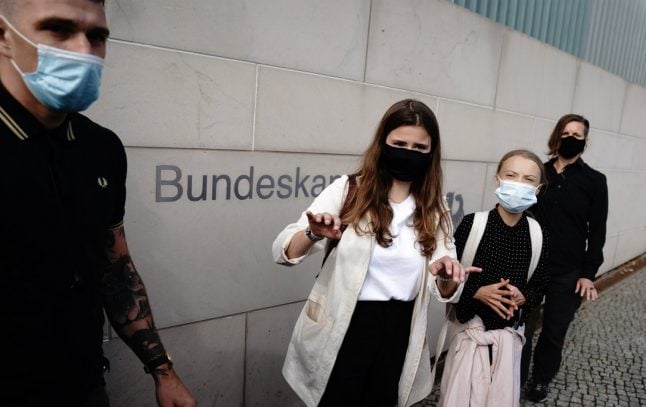Merkel said Swedish 17-year-old Thunberg and her co-campaigners Luisa Neubauer from Germany and Belgium's Anuna De Wever and Adelaide Charlier had requested the meeting and she was “pleased” to welcome them to the chancellery.
The activists warned ahead of the talks that they were dismayed at the lack of progress in fighting climate change despite lofty promises by European governments.
“When it comes to action we are still in a state of denial. The climate and ecological crisis has never once been treated as a crisis,” they wrote in a letter published in Germany's Der Spiegel and Britain's The Guardian on Wednesday.
“We will tell Merkel that she must face up to the climate emergency – especially as Germany now holds the presidency of the European Council. Europe has a responsibility to act.”
The meeting comes exactly two years after Thunberg, then 15, started skipping school to strike outside the Swedish parliament to dramatise the need for action against global warming.
The strike movement has since spread across the world and Merkel has repeatedly expressed her admiration for the masses of young people demonstrating on Fridays for more climate protection.
But the activists say nothing concrete has changed.
“Effectively, we have lost another two crucial years to political inaction,” they wrote, calling on countries to urgently halt all fossil fuel investments.
Despite its green reputation abroad, Germany is struggling to meet its own climate targets as the country remains heavily reliant on coal because of its decision to phase out nuclear energy after the 2011 Fukushima disaster.
Europe's top economy was widely expected to miss its goal of reducing climate-heating greenhouse gas emissions by 40 percent this year compared with 1990 levels.
READ ALSO: Five ways Germany makes you greener (without even noticing)
But a government report on Wednesday said the coronavirus pandemic could unexpectedly help it meet the target after all, after the crisis wrecked economic activity and lowered demand for polluting coal.
Germany has promised to abandon coal-generated power by 2038, a date considered far too late by climate activists.
The European Union as a whole aims to achieve carbon neutrality – or net zero greenhouse emissions – by 2050.




 Please whitelist us to continue reading.
Please whitelist us to continue reading.
Member comments